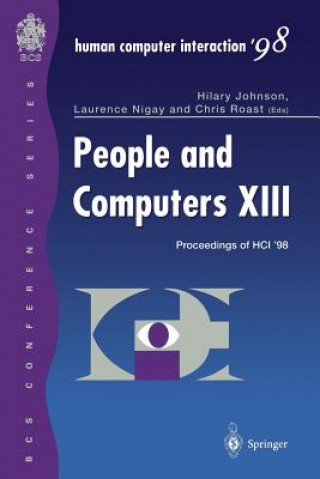
Kézbesítés
Vásárlási tanácsadó





Nem vált be? Semmi gond! Nálunk 30 napon belül visszaküldheti
 Ajándékutalvány
bármilyen értékben
Ajándékutalvány
bármilyen értékben
Ajándékutalvánnyal nem nyúlhat mellé. A megajándékozott az ajándékutalványért bármit választhat kínálatunkból.
People and Computers XIII
 Angol
Angol
 168 b
168 b
30 nap a termék visszaküldésére
Ezt is ajánljuk


The need for ensuring that usability measurement results can contribute to the ongoing development of a software product in a formative way is the main theme of this paper. It is recognized that acquiring, structuring, and analysing data about the actual progression of a product's development is a challenging task. Even more difficult, is the problem of making the results of any analysis of that data readily accessible to all the participants at regular intervals in the process. The paper presents an approach to supporting that process exemplified in SEDRES (Systems Engineering Data Representation and Exchange Standardization), a European Aerospace collaborative project on developing a data exchange capability for design tools. The main subject is the role of a software tool called NUD IST (Non-numerical Unstructured Data Indexing Searching and Theorizing) (QSR, 1997), in providing support for structuring and analysing longitudinal data and for regular feedback to the project partners about the product under development. The paper begins with an overview of the context of use, a systems engineering project involving five major companies in the European Aerospace industry. SEDRES is a three year project which started in January 1996, co-funded by an ESPRIT grant from the European Commission. The project partners comprise Aerospatiale, Alenia, British Aerospace, Daimler-Benz Aerospace, Saab and Linkoping University (Sweden), the Australian Centre for Test & Evaluation (ACTE), and Loughborough University Telecommunications and Computer-Human Interaction (LUTCHI) Research Centre.
Információ a könyvről
 Angol
Angol




 Hogyan vásároljunk
Hogyan vásároljunk



















